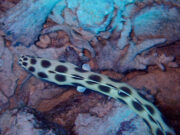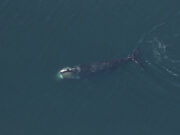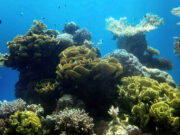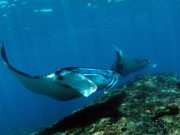Just like any athlete looking to optimise performance, divers that maintain a balanced and healthy diet will be much more effective in their ability to breathe, swim and stay safe. As you prepare for your next dive in one of the world’s top scuba destinations, learning how strategic nutrition contributes to a worry-free and more enjoyable underwater experience is key.
Exploring the physiology of diving
Before diving into the specifics of meal timing, it’s important to first understand how the body responds to the unique conditions of diving. Diving places particular demands upon the body, including changes in pressure, increased energy expenditure, and altered breathing patterns, to name a few. For every 10.06 metres you go down deeper into the water, the pressure increases by one whole atmosphere, which can influence endurance. With so many changes happening at once, it only makes sense that our physical well-being is impacted, leading to adjustments and alterations in typical biological processes. These factors can greatly affect digestion, nutrition absorption, and overall comfort during a dive, which is why it is essential to focus on meal timing before and after you dive to ensure that the food you’ve consumed is not detrimental to performance or recovery.
Optimal pre-dive nutrition tips
The timing of your pre-dive meal plays a pivotal role in ensuring an energised and comfortable experience on your underwater adventure. Ideally, divers should eat a well-balanced meal two to three hours before a dive. This meal should include a combination of carbohydrates, healthy fats, and proteins to provide plenty of sustainable energy.
Since carbohydrates serve as the body’s primary source of energy, a meal that is high in carbs is essential for a successful dive. Opt for complex carbohydrates like whole grains, fruits, and vegetables, as these will provide a gradual release of energy while you dive.
You’ll want to avoid greasy, heavy, or spicy foods prior to your dive, as these can cause an undue amount of indigestion, discomfort, and sometimes nausea while you’re underwater. Choosing pre-dive food options that are easy to digest will ensure your body can operate efficiently and energetically during your dive. Moreover, a meal that’s light and nutritious will ensure that you won’t have to deal with any digestive distress, which can majorly impact the quality of your dive.
Taking care of nutrition post-dive
After you resurface from a successful dive, your body needs to shift to recovery and replenishment. Scuba diving burns between 400-700 calories per hour. As a result, consuming a balanced and nutritious post-dive meal within the first hour of resurfacing is crucial to repair muscles, replenish glycogen stores, and support the process of recovery.
Similar to your pre-dive meal, your post-dive meal should also incorporate a mixture of carbohydrates and proteins. Carbohydrates refuel glycogen, which is greatly depleted during physical activity like a rigorous dive. Protein, on the other hand, supports muscle repair and growth.
Whether you’re a seasoned diver or just beginning, paying special attention to when and what you eat can make a huge difference in your overall diving experience. Of course, you can experiment with the timing and training routine that works best for your physiology, but the key is to prepare with a carbohydrate-rich meal two-to-three hours before your dive, and to eat within the first hour after you resurface to initiate recovery.
Main photo: Martin Hablützel/Deposit Photos

















